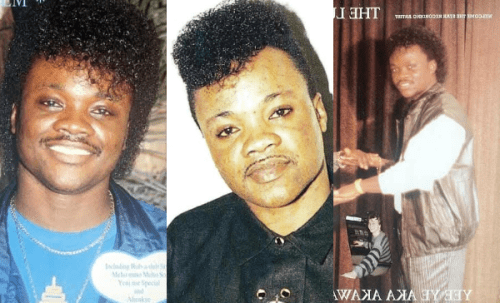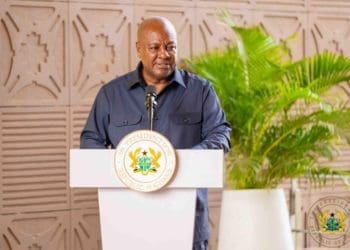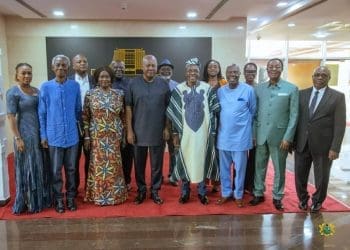For more than forty years, Charles Kojo Fosu, famously known as Daddy Lumba, has towered over Ghana’s music scene with unmatched artistry and a prolific discography. With over 33 albums and more than 200 songs, Daddy Lumba is not only Ghana’s most celebrated highlife musician but also a cultural icon whose legacy has shaped the very fabric of Ghanaian music.
From his debut solo album in 1989 to his most recent projects, Daddy Lumba has traversed an astonishing creative path.
Each album is a tapestry of themes—ranging from romantic ballads and social commentary to spiritual yearnings—stitched together by his signature vocal delivery and lyrical wit.
Whether serenading lovers with or poking fun at social, Daddy Lumba’s creative duality continues to intrigue fans and critics alike.
The controversial genius
If consistency is the hallmark of legends, then unpredictability is Lumba’s signature spice.
He is just as known for his deeply spiritual gospel offerings as he is for his risqué lyrics and provocative music videos.
One year, he releases a gospel album with titles praising Jesus; the next, he’s crooning about betrayal and bedroom exploits with a boldness that rattles the conservative crowd.
This duality—reverence on one hand and rebellion on the other—has come to define his complex persona.
It has made him a household name across generations, cutting across demographics and winning him both devout admirers and harsh critics.
Below is a comprehensive look at his discography and the evolution of his sound—an archive of more than 200 songs across 33 albums, including collaborations with the likes of Ofori Amponsah, Borax, and Nana Acheampong.
Each project, whether a solo work or a collaborative effort, reveals something new about the man behind the music.
Daddy Lumba released his first album, Yereye Aka Akwantuo Mu” 1989 with Nana Acheampong
Yereye Aka Akwantuo Mu
Odo Fakye
Enko Ngya Me
Yenka Ntam
Aban Nsa Aka Wo
Daddy Lumba came out with his 2nd album, titled, “Obi Ate Meso Bo” in 1990
Theresa
Ankwanoma
Obi Ate Meso Bo
Nom Nsuo Twen Ope
Makoma Ho Tofe
Me Mpaebo
Daddy Lumba released his 3rd album, “Sika Asem” in 1991
Sika Asem
Eye Odo Nti
Made In Ghana
Yenfa Odo
Se Wotan Mea
Ahenkye
Daddy Lumba released his 4th album, “Playboy” in 1992
Ohia Asem
Play Boy
Mensei Da
Odo Beba Na Mawu
Nkyenkyen Wo Na Afe
Monsu Ma Me (Awisea Foforo)
Also in 1992, Daddy Lumba teamed up with Felix Owusu for his 5th album, “Vida”
Emmefa Nko Gyae Me
Vida
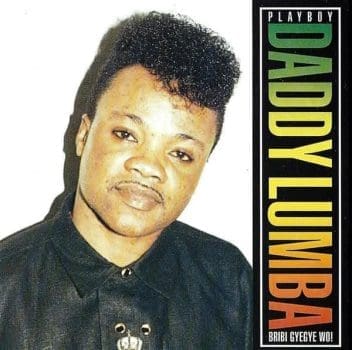
In 1993 Daddy Lumba released his 6th album, “Biribi Gyegye Wo”
Makra Mo
Biribi Gyegye Wo
Enye Nyame Den
Medwen Me Ho
Mepe Wasem Bebree
Daddy Lumba joined forces with Afua Ampofowaa in 1994 to released his 7th album “Odo Foforo”
Enkosi Daben
Opono Hini Me
Odo Foforo
Nsei Me Din
Babiara Ni Ho
In 1995, Lumba released his 8th album “Sesee Wo Se”
Anidaso Woho Ma Obiaa
Sesee Wo se
Odo Mensu
Me Ndaada Wo
Me Ne Odo Ne Beko
Children Of The Future
Daddy Lumba came out with his 9th album, “Mesom Jesus” Also in 1995
Mesom Jesus
Amansan Nyinaa Nto Ndwom
Mebo Wodin Akyere Aman
Job Ye Din
Yesu Ka Ye Ho
My Lord Is Able
Daddy Lumba teamed up with Akua Serwaa Bonsu to release his 10th album, “Hwan Na Otene” album in 1996
Beye W’awanwa Adwuma
Hwan Na Otene
Magyenkwa Pa Yesu
Edin No Ne Jesus
Messiah
W’agye Me
Woka Yen Ho Daa Nyinaa
Woye Onyame
In 1997, Daddy Lumba came out with his 11th album “Back For Good”
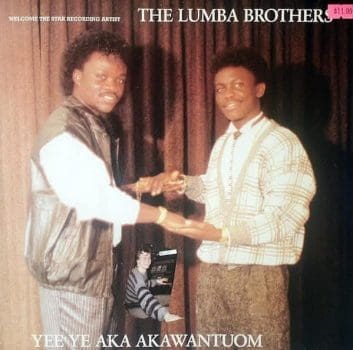
Back For Good
Se Emere No Beso a
Ebi Se Eye Aduro
Se Wo se Kete Bae Mu
Eye Onoa
Menye Den Koraa
Innocent People
In 1998, Daddy Lumba came out with “Aben Wo Ha”. His 12th album.
Doctor Panee
Fakye
Aben Wo Ha
Dangerous
Hye Wo Ho Den
Se Wo Da Ento Pono Mu
Nyame Nhyira Mmaa
In 1999, Daddy Lumba joined forces with Ofori Amponsah to release his 13th album, “Millenium Love Songs”
Auntie Atta
Hye Me Bo
Odo Mmra Fie
Jane
Wo Nkoaa
Odo Ade3 Bi
Esi So
Wo Daa Da
Wo Ho Kyere
Daddy Lumba released his 14th album, “Mato Odo Mu” In 2000
Twime
W’ate Asie
Meda Me Gya Mu
Emere Pa
Mmaa Monsore
Bla Bla Bla
Mariama
Daddy Lumba joined forces with With Selina Orleans to release his 15th album, “Fa Woho Bo Jesus”
Aseda Ben
Enye Awurade Den
Fa Woho Bo Jesus
Menim Se Wo Betumi
Monyi Awurade Aye
Ayeyi
Yesu Ye
Yesu Ndaase Nka Wo
In 2001, Daddy Lumba released his 16th album, “Poison”
Poison
Menya Mpo
Ghana Yonko
111666
Woara Beba
Ehye Obi Yam
Akoma Da Akoma So
Onyame Were Nfi Ne Mma
Daddy Lumba came out with his 17th album, “Me Ma N’afa Wotrim” (Released in 2002)
Adepa Hye Adepa Mu
Dofopa Amma Ntem
Mema N’afa Wotrim
Osome Oso Bone
Se Sumye Kasa a
Homeless
A Plus
Okuafo Ye Adwuma Opon
Daddy Lumba came out with his 18th album, “Asie Ho” feat Borax also in the year 2002
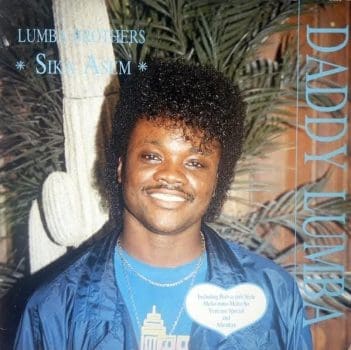
Asie Ho
Odo Meko
Nana Yaa
Eye Onoa
Twe Ben Yen
Mama Pa
Me Coat Yi
I Can Fly
War
Greeting Babylon
Daddy Lumba released his 19th album Bubra in 2003
Bubra
Dada Kae
Daddy Pay All
Adaka Tea
Saa Na Eye
Ataa Nkwan
Odo Nfa Me Nko
Pony
Daddy Lumba again teamed up with Borax for his 20th album in 2004
Pa Ntoma
Odo Bewu De3
Ma Obi Nfa Me Nko
Aden Koraa
Meba
Menti Gyae
Onko Na Me Nko
Sika Nti
Wala
The Bee Squad
Daddy Lumba teamed up with Pat Thomas for his 21st album titled Ahenfo Kyiniye in 2004
Ahenfo Kyinie
Moye Kwa
Nana Nyankopon
Emere Pa Beba
Fameye
Agyabi Wua Agyabi Tease
Orekyekye
Daddy Lumba came out with his 22nd album, “Area Boy”, featuring Afua Ampofowaa in 2005
Area Boy
Kyere Me Odo
Wontee Y3 Anaa
Daddy Lumba released his 23rd album “Give Peace A Chance” again in 2005
Give Peace A Chance
Gyedi
Gold Digger
Wokaekae Me
Medowo Se Nea Wodo Me
Wo Beda Gee
Wondo Me Anaa
Yekurakura Mu
In 2006, Daddy Lumba came out with his 24th album, “Tokrom”
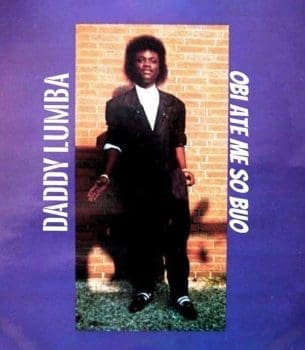
Tokrom
Give And Take
Obi Ate Meso Bo (remix) aka Enshie Wo, feat. Okyeame Kwame and Kwabena Kwabena
Odo Beba Na Mawu remix
Mensei Da remix
Enye Nyame Den remix
Taaso Eburo a.k.a Molemole Boy
Anim a Yede Di Sika a.k.a Asante Nkae
Daddy Lumba released his 25th album “Agenda” in 2007
Agenda
Angel
Edwo a Enye De
Ogyeboso
P.O.P
I’m Powerful
Amansan Su
- Power feat. Obrafour
Daddy Lumba released his 26th album “Sika” in 2008
Sika
Si Me So remix
Medo No remix
Nana Awu remix
Mas3de a.k.a Se Awiase Nyinaa
Huhuuhu
Mpempem Do Me
In 2009, DL released his 27th album, “Aware Pa Ye Anibre”
Enti Se Ade3 Akye Me a
Aware Pa Ye Anibre
Anadwo Yi De3 feat. Sarkodie
Dikon feat. Bradez
Baah Wiredu
In 2011, Daddy Lumba released his 28th album, “Kohye Po”

Ko Hye Po
Ye Ne Wo Sere Kwa
Ma Enye Wonkoa Adom
W’apre Anu Woho De3
Ma Enye Wonkoa Adom (Worship)
In 2014, Daddy Lumba released his 29th album “Awosoo”
Nea Woho Beto Wo a.k.a Yentie Obiaa
Awosoo
Odamani Bewo Ama Y’ahwe N’adapan
Epokye
Nea Nyame Tumi Ye
In 2015, Daddy Lumba teamed up with Great Ampong to release the album “Hosanna”
Awurade Ka Meho
Enye Dam Bi
Father and Son
Hosanna
Jesus is Winner
Kronkron
Mafore Bo Ndwon
Wo Tumi Ye Kese
Daddy Lumba came out with his 31st album “Enko Den” in 2016
Enko Den
Biakoye feat. Okyeame Kwame
Osoro Nkye Me Ne4. Yenfa Anadwo Nye Nna feat. Okyeame Kwame
Daasebre Gyamena
Yefri Adom Beko Adom Mu
Legacy and Influence
Daddy Lumba’s influence is impossible to quantify. Many of today’s top Ghanaian musicians—both in highlife and beyond—credit him as their inspiration. His lyrical agility, melodic inventiveness, and ability to reinvent himself over the decades set him apart as not just a musician, but a movement.

Now in his late fifties, Lumba shows no signs of slowing down. In recent interviews and social media posts, he hints at yet another album in the works—his 34th—further extending his remarkable contribution to Ghanaian music and African pop culture at large.
As music platforms continue to immortalise his catalogue, and young fans rediscover his classics, Daddy Lumba stands firmly in the pantheon of African musical greats—a highlife king whose reign remains as golden as ever.

